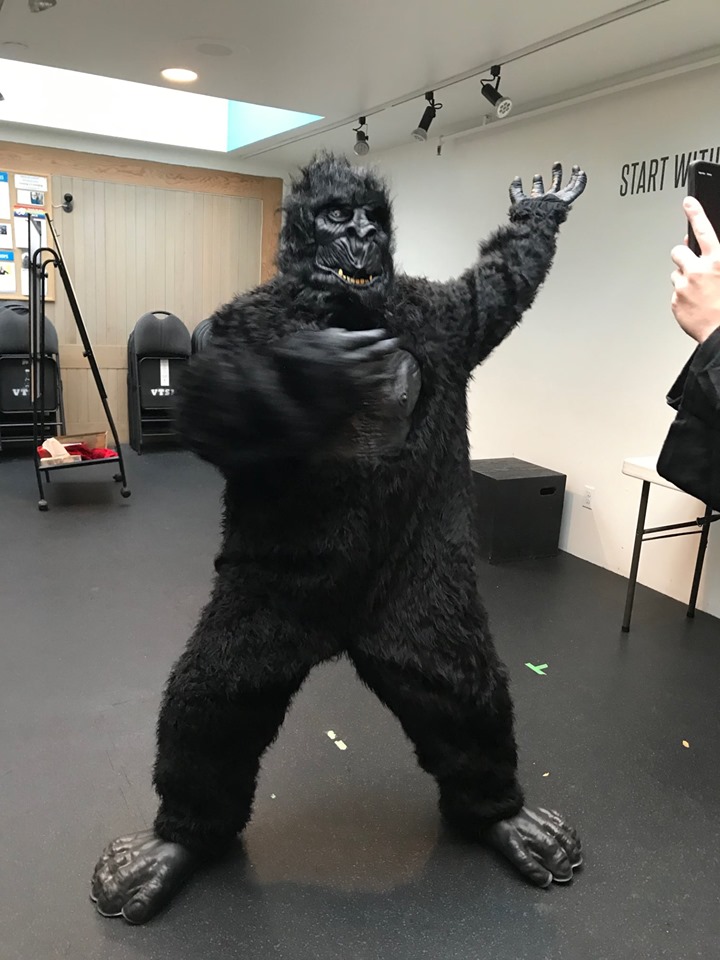
After six seasons, ‘Superstore’ hangs up the vest
By Craig Allan, Business Manager
If my description makes the show sound like ‘The Office,’ that may be because the creator of ‘Superstore,’ Justin Spitzer, was a writer for a majority of the show’s run.
Last Thursday saw the series finale of Superstore. For the average audience, it’s understandable if the ending of this wonderfully relevant show was lost on the average viewer. Superstore was always a widely praised comedy for its portrayal of life in the bowels of a department store, but in the era of cable and streaming, it’s easy to miss this hilarious show toiling away on broadcast TV.
For those who don’t know, Superstore was a show about workers at a department store called Cloud 9, a store that no doubt takes some inspiration from another blue clad, all encompassing department store. Throughout each episode, the staff of Cloud 9 would have to deal with the barrage of problems and disrespect that comes with working for a large conglomerate. If that makes the show sound like The Office, that may be because the creator, Justin Spitzer, was a writer for a majority of the show’s run.
Episodes that showcase the trials the store had to go through involve plots like “Lottery” where the employees contact head office for raises, the company instead sends management their protocol for these type of questions, which involves a program that teaches employees how to make a budget. There is also the episode “Essential” which shows the employees dealing with the onslaught of COVID-19 from rude customers to the store sending them personal protective equipment, which is actually just riot gear to deal with the Black Lives Matter protests.
I always liked Superstore mostly because as someone who had gone through two years of Target’s unsuccessful run in Canada, I get a lot of the feelings of abandonment felt by the employees towards the store’s higher ups. The show was one of the reasons I decided to get a job at the Walmart that replaced the Target I worked at. I thought I could have a laugh at my circumstances being similar to theirs and get to appreciate the show and my own work situation as I recognized how similar they were. How wrong I was, because when I think back on it now, the only thing I remember about my experience at Walmart is crushing sadness.
I also liked Superstore because I have always been a fan of underrated, long shot gems. Considering Superstore’s episode order was cut before the show even started aired, and the show was a mid season replacement, it had a tough hill to climb. But climb it did, becoming one of the most popular shows on network TV, and being a steady ship in a struggling comedic sea at NBC. It got to the point where at the end of the 2019-2020 television season, the show’s fifth season was the only half-hour comedy show that was renewed by NBC.
Despite the fact that Superstore did have its fans, it never seemed to garner the same amount of love that its similarly premised predecessor The Office did. It’s a shame too because I think the show is in a way more relatable than The Office. Not everyone has worked in an office, but everyone has gone to a department store, or seen a terrible customer berate a staff of low-wage workers just trying to do their best. Superstore was the slice of life of people who most people see on a weekly basis, abundant, but rarely represented in a major way on television.
Could Superstore had gone on for more seasons? That question is hard to answer. Season six saw the departure of star America Ferrera but the show seemed to be bouncing back from it; not missing a beat without Ferrera’s Amy who was always more of a straight woman character compared to the others. The show’s cancellation seemed to come out of nowhere, because it felt like there were so many more stories to tell, especially considering the pandemic gave so many new story opportunities for the often overlooked profession.
Who knows if Superstore will one day achieve the bingeable re-watch status of its predecessor. All that can be known is that Superstore was one of the most relatable sitcoms ever put on television and considering the culture that occurs at Walmart these days is likely to continue for many years, Superstore will no doubt remain a culturally relevant piece of television for a while.



